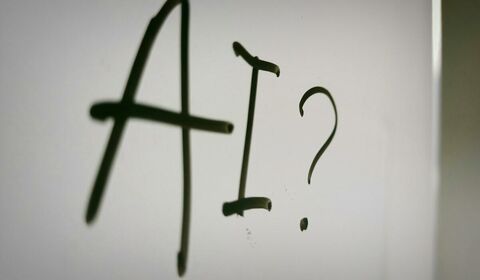Hire purchase or lease rental: which is best for your business?
Thinking of buying or renting a new business asset? We’ll help you understand the difference between hire purchase and lease rental (and how each option affects your tax and cashflow).
When setting up or growing your business, you’ll need access to new equipment, tools and vehicles. This usually means accessing finance to either buy or lease these new assets.
It’s easy to get confused between hire purchase (HP) and lease rental (LR). The names lenders use aren’t always helpful, and the tax and VAT treatments are very different.
To help you get a handle on these two very specific finance facilities, we’ve outlined the main differences between HP and LR, and how they’re both taxed.
What’s the difference between Hire Purchase and Lease Rental?
Both of these approaches give you (the business) the ability to make use of the asset. The machinery or equipment will be there in your workshop, warehouse or office for your employees to use as part of your operational processes.
But there’s a big difference when it comes to the legal ownership of the asset:
- Hire purchase (HP) – with HP, you make regular payments to the HP provider and have immediate use of the asset. Once you’ve completed the repayments, your business will be the owner of the asset. In short, you buy the asset over a period of time.
- Lease rental – with LP, you still make regular payments to the LR provider and can use the asset as soon as the lease agreement is completed. The difference is that you’re only renting the asset, not buying it. At the end of the lease agreement, you won’t be the owner of the asset (although you may be offered the chance to purchase the asset).
How does buying or renting affect the tax you pay
But how does this affect the tax you save on the use of this particular bit of machinery, tech equipment or vehicle?
- Let’s imagine that you want to buy a van for the business.
- Buying a van – if you purchase this asset, then you claim back the VAT at the time of purchase. You can also claim the cost of the van through capital allowances, often in full in the year of purchase.
- Renting a van – if you rent the asset, then you claim VAT each month against the rental invoices, and the rental payments are claimed as an expense throughout the rental period of the agreement.
How can using HP or LR confuse the tax issue?
As we’ve seen, buying or renting can have very different tax implications. Where the confusion can arise is when the asset is financed through a particular finance facility. The finance agreement may be HP or LR, and it isn’t always clear which type is being used.
These are the main tax differences:
- Using HP to finance the asset – with HP, you can still claim the full VAT on the purchase price at the time of acquisition. The deposit paid must be at least equal to the VAT. The full cost of the van appears in your balance sheet as a fixed asset, and there’s a liability shown for the future capital repayments (the purchase price including VAT, less any deposit paid). As each payment is made, the interest amount goes to expenses, and the capital element reduces the liability created.
- Using LR to finance the asset – With LR, VAT on the monthly payments is claimed as it arises, and the net payment is treated as an expense.
Does the business own the asset?
To qualify as an HP agreement, the agreement has to confer ownership. So, the question to look at when examining the finance is ‘Does the business own the asset?’.
- If there’s an option to purchase at the end of the lease period for a significant balloon payment, then it’s not a HP agreement and it will be treated as a LR transaction. If there’s an option to purchase for a nominal sum, say £1, such that it’s extremely likely that the option will be exercised, then it will be HP.
- If payments during the minimum lease period of at least 7 years (excluding interest) covers at least 80% of the cost of the asset, the agreement for these purposes is treated as an HP agreement.
Choosing the finance path that’s best for your cashflow
Knowing whether you’re entering into an HP or LR agreement is important for two reasons.
- The choice of finance will affect your tax liabilities in the future.
- The way you pay these taxes will have an impact on your cashflow position.
The timing of VAT claims and tax relief can have a significant effect on cashflow, so it’s important to make sure that you know whether you’re going down the HP or LR route – and that the correct treatment is followed by you and your tax advisers.
Helping you make the best finance decisions
If you’re thinking of acquiring an asset through finance, please do come and talk to us first. If you can provide us with the documentation, we’ll determine the correct VAT, corporation tax and accounting treatments to follow – saving you any worries further down the line.
Whether you’re purchasing a vehicle, equipment and other assets, talk to us about the impact of different options.
Get in touchRelated Articles

How to improve UK business confidence
UK business confidence is under pressure - discover why now is the time to re-evaluate your strategy and growth plans.
Read On
Protecting you and your business: taking out insurance
Understand 5 common types of business insurance and how they help protect and secure your company’s future.
Read On
Finding the true potential of AI for UK small businesses
A recent report from the British Chambers of Commerce & Intuit showed that AI usage is growing among UK SMEs. Are you using AI to its full potential?
Read On